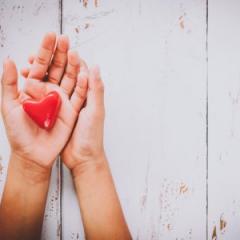Have you ever experienced that uplifting feeling after performing a random act of kindness?
Whether it's as simple as holding the door open or treating a friend to coffee, these small gestures can have significant health benefits. Research indicates that engaging in acts of kindness not only brightens someone else's day but also boosts your own happiness.
What are Random Acts of Kindness (aka RAOK)?
Random acts of kindness are small, simple, and unexpected gestures that can have a big impact on others. Any act you do without a motive that stimulates a sense of happiness and joy in others counts as a random act of kindness. Examples include shouting someone a coffee, making them breakfast, or mowing their lawn. Simply put, they are acts of generosity done for no other reason than to bring joy and make someone feel special.
Why is kindness important?
Small acts of kindness can make a big impact not only on other people’s lives but on our own too by improving our overall well-being.
Kind acts signal to others that we care about them and that they are important to us. Knowing someone cares about you and thinks you are important can boost feelings of happiness and optimism. When we show kindness, it also helps others to feel seen, appreciated, and supported. Think about the last time someone was kind to you. Maybe a stranger gave you a compliment or a friend offered to help you move house. How did that make you feel? Valued? Worthy? Happy? Safe?
But it’s not just the recipient who feels good; the person delivering the kind act also benefits. Showing others kindness has many personal benefits including making us feel happier, strengthening our connections, improving our sense of belonging and purpose, and even reducing our stress levels and blood pressure. Often we may only do kind acts for people we are close to like our family and friends, but extending this kindness to strangers can also make us feel good. Did you know that people who practice kindness may even live longer, healthier lives?
What are some simple ways to be kind?
It doesn’t take much to inject some extra kindness into your everyday routine. Here are a few ideas to get started:
Ask someone how their day is going
Smile or say hello to someone you haven’t met before
Give a compliment
Sit with someone new in a lecture and introduce yourself
Shout a stranger a coffee
Let a lecturer or tutor know you appreciate them
Bring lollies to share with your classmates
Give someone your seat on the bus
Remember, it’s often the smallest acts of kindness that can have the most impact.
What about self-kindness?
You can also show yourself kindness – also known as self-kindness. This can be as simple as talking to yourself with a kind voice, remembering your good qualities, or giving yourself the chance to have some ‘down time’ and read a book.
Final thoughts
We can all try to show others, and ourselves, some kindness. As the Dalai Lama said, ‘Be kind whenever possible. It is always possible’. So why not challenge yourself this week to do one random act of kindness each day? You might be surprised at how good it makes you feel!
Learn more about kindness, compassion and psychology with Dr James Kirby.
Interested in studying psychology? Learn more about UQ's Bachelor of Psychological Science (Honours).



